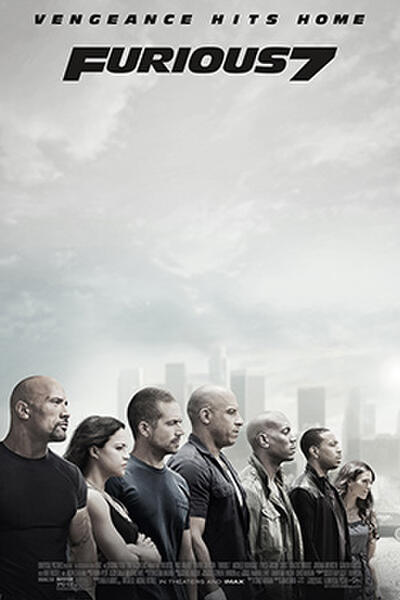Furious Seven, Directed by: James Wan
Begin Again, Directed by: John Carney


Furious Seven is a bad movie. It’s bad because the characters are wooden, the plot hackneyed, and the writing insipid. The evidence for these allegations is so fulsome that it seems a waste of time to give any, so let me defend that statement by asking the reader to do any one of three simple exercises. 1) Name any character in the movie, good or bad, brand new or deeply rooted in all seven films of this achingly boring franchise, and describe any scene that shows any real development in their personality, belief system or moral being. 2) Describe any plot twist that is new or interesting in any sense of the word, and tell me how it is so. 3) Repeat any piece of dialogue or relate any development of the story that is not found in at least two of the former films.
So why would I suggest it for review? To give myself an opportunity to let off some steam about movie-going in America. How can Furious Seven make $1.5B (Yes, you read that correctly: Box Office world-wide: one and one half BILLION dollars) and a movie like Begin Again make $16M? Both movies are completely accessible; there is nothing deeply philosophical or formally obtuse about either movie. One is an action/adventure flick, one is a romantic comedy. This is a major difference, to be sure, but both are about human beings and their relationships, both have recognizable stars, and both demand nothing of, or give a lot to, the viewer. No complicated plot twists here.
A critic I admire once said something I think is absolute poppycock, that there are no bad films made in Hollywood anymore. I know what he meant, that there are no Ed-Wood-like silly films made because there is too much money and the technology is so advanced that the look of almost every film is polished, but I think that’s a bad use of the word “bad”. Anyone who says there are no bad films (someone has written a book with that title, and a funny one at that) makes two critical errors. The first is that, though “bad” and “good” are often subjective categories, the reason God gave us the ability to dialogue with each other is so that we can turn the subjective into the objective. We do that by presenting our evidence for why the object is “bad” or “good” and then discussing that evidence. When a conclusion is reached that the evidence is overwhelmingly in favor of one or the other, a form of objectivity has been achieved. I submit that, given time, I could persuade anyone that Furious Seven is a bad movie and that Begin Again is a good one.
The second critical error is that expensive and shiny don’t equal “good”. Polish and elegance don’t mean that the movie creates in the viewer an experience that is satisfying or that the movie has been able to transport you from your world and place you into its. These two things—satisfaction and transportation—are major factors in the greatness of a film. One doesn’t have to like the “message” of a film to think it a great film, one only has to believe that it has told its message well.
Furious Seven had one redemptive moment, at the end, when Paul Walker was so movingly eulogized by the scene on the beach. But that was not even part of the original movie of course, and doesn’t really qualify as part of the film.
Drew Trotter
May 29, 2015